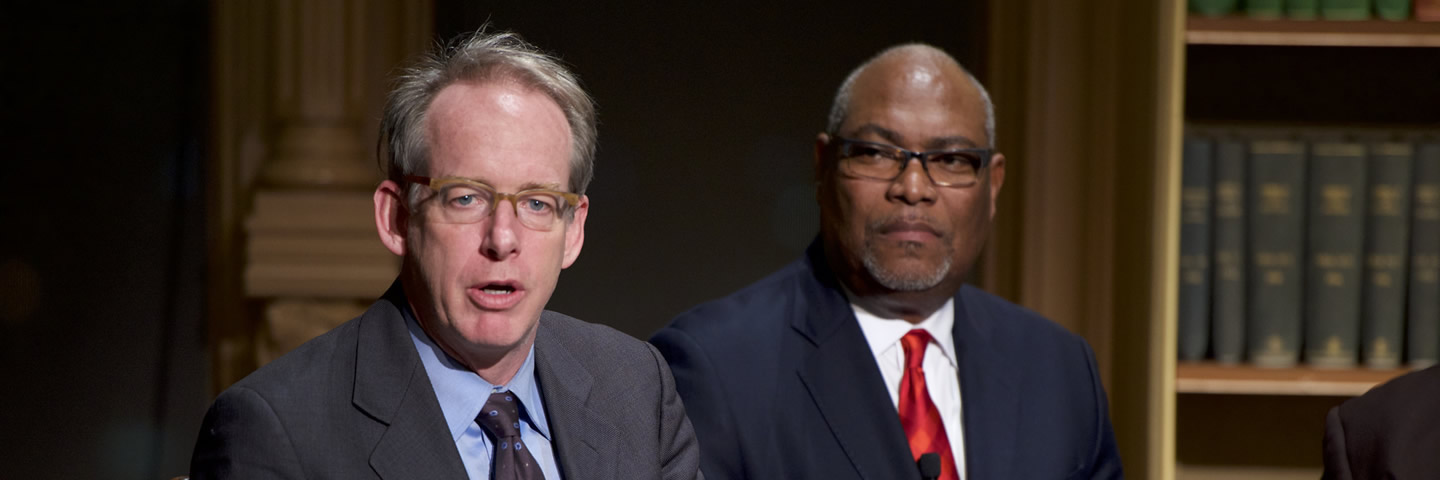
As a kid, John Marboe revered his local garbage man and often played near a landfill on the outskirts of his hometown of Alexandria, Minnesota, admiring the treasures people tossed. It was not until 2011 when tough times urged him to take a job hauling trash that he unearthed unexpected connections between his roles as Lutheran pastor and part-time garbage collector.
“I probably know more about people on my route than their pastor does. Their trash tells a story,” said Marboe, who is also a University of Minnesota adjunct professor.
One parallel Marboe draws between his roles—from preaching at funerals to disposing of rubbish—is that they connect him to the side of life surrounding loss, a steady reminder of the fleeting nature of things. He continues to haul trash because “every small thing that we do for other people is valuable, even if it might be really small and unnoticed.”
The conversation between “Rev. Dr. Garbage Man,” as many people call Marboe, and his 13-year-old daughter, Charlie, was featured on NPR’s Morning Edition on Friday, January 20.
The Project
Rev. Marboe’s story is just one of the more than 100 informal, conversation-style stories that have been recorded and archived by the American Pilgrimage Project, a Georgetown University partnership with StoryCorps that collects, shares, and interprets accounts from ordinary Americans about their encounters with religion in everyday life.
According to Paul Elie, project director, author, and senior fellow at the Berkley Center for Religion, Peace, and World Affairs, the project’s goals are to use the stories people tell each other to deepen our understanding of the role religious belief plays in individual lives—and to render experiences that are often overlooked when religion is interpreted through theology, politics, or social science.
“We are trying to go the proverbial ‘last mile’ when it comes to religious belief—to push past generalizations and capture the surprising and moving ways in which people’s beliefs figure into crucial moments of their lives,” Elie said.
The project guides the exploration of the changing role of faith in our society in a time of growing religious and cultural diversity, he added.
The Partnership
With one-third of the project underway, more than 100 stories from eight cities across the country have been gathered and digitally archived in Georgetown’s Lauinger Library and the American Folklife Center at the Library of Congress. Established in 2012, the American Pilgrimage Project is StoryCorps’ first project focused on religion and first partnership with a university. The Brooklyn-based documentary organization aims to preserve individuals’ accounts of American culture as a resource for future generations and has recorded conversations of more than 250,000 people since 2003 in an effort to bolster connections between fellow Americans and remind listeners of their shared humanity.
“It’s a privilege to partner with such a dynamic organization,” Elie said. “Not long after we started our work together, for example, StoryCorps brought out a phone app that enables people to record their stories themselves—and it turns out that a striking number of stories, especially those told by young people, have a religious dimension. We hope to find a way to bring the American Pilgrimage Project to bear on those stories.”
American Stories
Other conversations in the project include two African-American ministers’ once-apprehensive calls to ministry and the need for community activism; a woman who questioned her faith, left the Jehovah’s Witness community in West Virginia where she was raised, and found solace in the Unitarian Universalist tradition; and a man who spent his childhood years believing a massive explosion that killed 300 people in his hometown in Texas was a punishment by God for his stealing from a grocery store at age 8.
One recording highlighted a Chicago couple’s struggle with infertility, the loss of very young children, and their tested relationship with God. After five miscarriages in four years, Mark Geraci and Judy Presta were pregnant with twins in 2011. They were just past the “danger point” of the pregnancy when they discovered Presta would have to deliver the twins early, knowing that the babies would die shortly after birth.
Racked with grief and feeling abandoned by God, the couple said both hello and goodbye to their tiny son and daughter, “ushering them into death.”
“How could the most horrific day also be the most beautiful?” Presta said. “It was the most profound peace and grace.”
The couple then started a tradition of recognizing the short lives of the two babies they lost by celebrating their birthday each year, even as the parents continued in vitro fertilization. Geraci connected with the “universal root of prayer, where if you only say ‘thank you,’ it’s enough” and began to pray to a child who was not yet created. It was then that Geraci restored his faith.
In 2014, their son, Francesco, was born.
“He is infused with love and joy,” Presta said. “He redeemed my soul.”
New conversations of the American Pilgrimage Project are shared online every other Friday.
